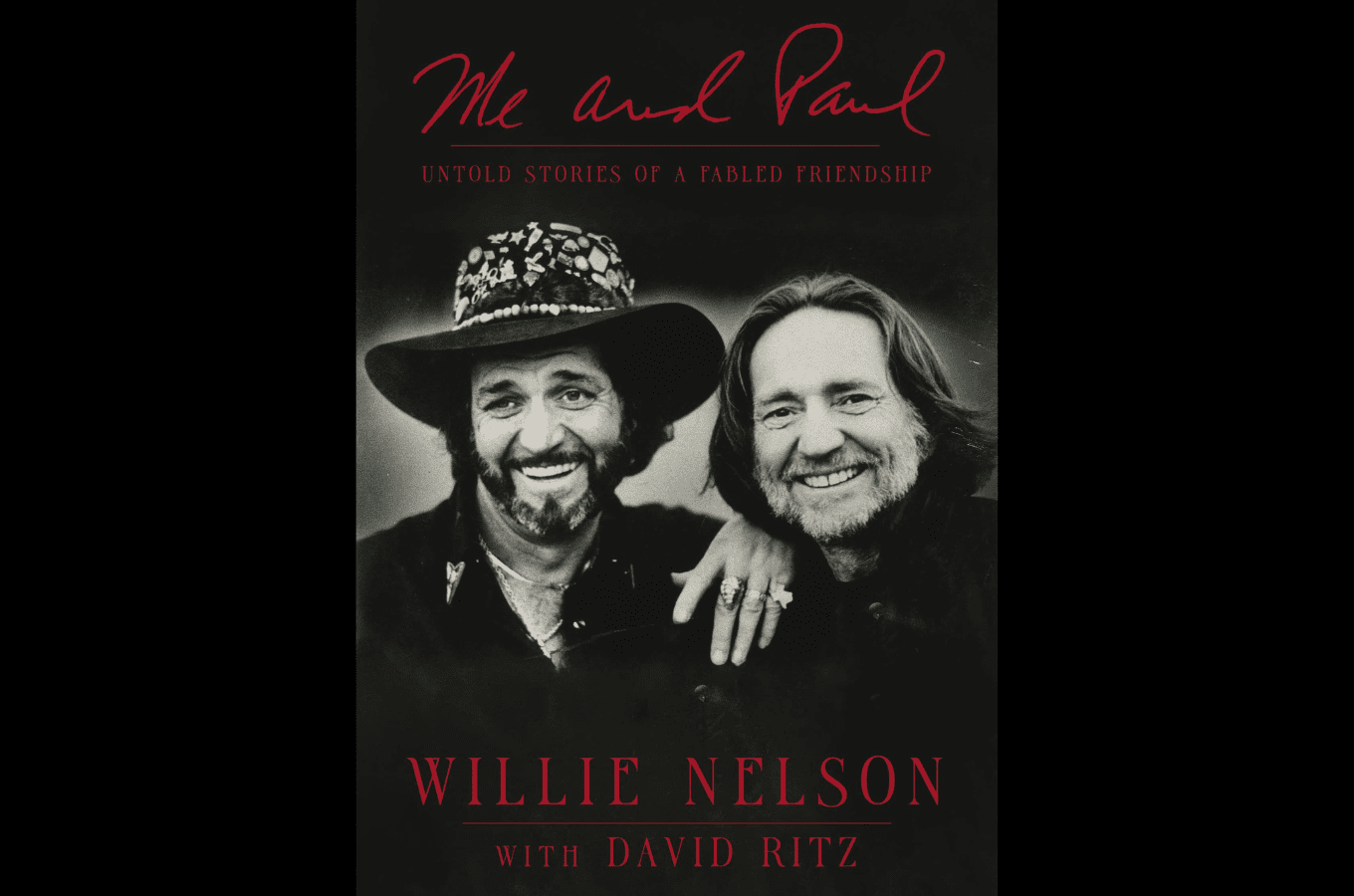THE READING ROOM: Willie Nelson Celebrates ‘Fabled Friendship’ With Paul English

In the song “Me and Paul,” Willie Nelson immortalized his beloved friend and long-time drummer Paul English in lines such as “we received our education / In the cities of the nation, me and Paul.” Now, Nelson lets readers in on their lifelong friendship in his humorous, poignant new book Me and Paul: Untold Stories of a Fabled Friendship (Harper Horizon). Teller of tales high and low, Nelson offers his heartfelt tribute to English, who died in 2020, via stories of English’s larger-than-life personality and the many scrapes and close calls the two experienced.
When English died, Nelson lost his best friend and the man who was like a brother to him. Nelson revels in the almost mystical relationship the two had with each other, writing that they understood each other so well they could communicate without even talking. As Nelson points out early in the book, “the purpose of this book is to ensure Paul’s iconic status. I’m out to honor him — not because he was perfect but because he was loved. It’s been said that a good friend knows all your best stories, but a best friend has lived them with you. Well, that was us.”
Although English kept time as Nelson’s drummer, he also served as his manager, his accountant, and his guardian, carrying with him a .45 pistol that he was willing to brandish when the occasion required it. According to Nelson, “Paul had my back. Paul always had my back. I mean that in every way possible. He had my back because his drums were behind me, and, like a baseball catcher facing the field in front of him, he saw all the action. But he also had my back no matter where we were — on the bus, at a card game, or prying our pay from some two-timing promoter. He did all this wearing an ensemble that would come to be his signature look: a jet-black suit topped off with a long cape lined in red silk that gave him the demeanor of the devil.”
During one show in Memphis — on the day Elvis died — Nelson invited Jerry Lee Lewis up on stage to join him in a version of “Over the Rainbow.” Very drunk, Lewis had other ideas and yelled, “I will be your new king!” English immediately stepped into the picture, without missing a beat: “Typical of Paul, his action was understated. He did the least to impact the most. In this instance, he reached into his gig bag, pulled out his .45, placed it atop his snare drum, turned to J.W., Jerry Lee’s manager, who was standing in the wings, and said, “First, I’m gonna blow your brains out, then I’m gonna shoot Jerry Lee straight through the heart.”
Nelson, as is well-known, sold many of his early songs — “Night Life,” “Crazy,” “Mr. Record Man,” “The Party’s Over,” among others — so he could pay the rent back in his early days in Houston. One night Paul was in town from Dallas; he and Nelson headed out for one of their all-night breakfasts, and Paul remarked on how sad Nelson seemed. At the end of the night, as dawn broke, English dropped Nelson off at his place. Before Nelson got out of the car, English handed him a wad of cash: “Since I don’t know when I’ll see you again, Willie, you better take this,” Nelson recalls his friend saying, then he handed Nelson a wad of cash.
“What’s this for?” asked Nelson.
“Buying back those songs you sold, you stupid son of a bitch.”
Nelson repaid English when English’s first wife, Carlene, died by suicide, writing a song about and for her. As he recalls in the book: “Paul was a thinker, a mathematician, a marksman, a strategist, a loyalist. Paul was a hundred different things, but he wasn’t a songwriter or a singer. Because of that, and because I felt so close to him, I decided to do for him what he couldn’t do for himself. In writing a song about his precious Carlene, I decided to become him. I wrote as if I were Paul and called it ‘I Still Can’t Believe You’re Gone.’ I write songs quickly. I let my heart do the thinking. My heart’s a better thinker than my mind. It’s also a quicker thinker. I write simple words and simple melodies. If I get too fancy, I lose my focus. My focus was on Carlene and the pain of her passing.”
English comes to life through Nelson’s stories: “Picture a towering, larger-than-life human being, a fearless man who, for decades, single-handedly protected me and my band of wandering minstrels from a world that wasn’t quite ready for us. In every unsteady situation, Paul stayed steady. Paul stayed strong. In the Willie Nelson Family, he stood in the center. He was the papa bear, the big brother, the wise uncle, the moneyman, the bag man, the dealmaker, the sharpest shooter, and the kindest heart.”
Willie Nelson is one our most beloved singers, songwriters, and storytellers, and Me and Paul takes us into chapters of his life he has not opened in his earlier autobiographies, including Me and Sister Bobbie (ND review) or Roll Me Up and Smoke Me When I Die. Nelson’s and English’s fans will certainly want to read this book, but anyone who loves listening to a good storyteller perform his magic will want to sit down for a spell with Nelson and his book.




